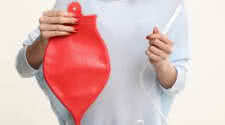Understanding Fasting & Enemas - Jump Start the Fat Burning Process

Find out all the facts about various fat burning methods for results
Fasting means different things to different people. Some people consider it fasting when they simply eliminate solid food but continue to
consume fruit and vegetable juices. That would more correctly be called a "juice fast." Some doctors and weight-loss clinics administer
what they call "protein-sparing modified fasts," which are essentially very low-calorie diets with a slightly increased amount and ratio
of protein. A true fast, however, which is what I assume you're referring to, would preclude consumption of any calorie-containing foods
or liquids.
Fasting is OK, within limits such as the short periods you refer to (up to a few days) as long as you ensure proper hydration. By that, I
mean really pushing intake of fluids - particularly pure water and, if you like, some unsweetened non caffeinated herb teas. If you're
consuming at least an ounce of water per kilogram (2.2 pounds) of bodyweight per day under normal circumstances (not including the water
in coffee, tea, etc.), then you should be shooting to increase that by 50% or more.
Hydration is critical because fasting acts as a potent diuretic by depleting both protein and glycogen in the liver and muscles. This can
rapidly and significantly deplete body water. Dehydration has a devastating effect on the immune system and is a major factor in
susceptibility to illness and infectious diseases. Studies done 20 years ago to pinpoint a physical, physiological or psychological "marker"
that could be used to predict the onset of overtraining symptoms determined that daily bodyweight was the best one. This makes sense because
loss of body water is the only thing that can cause a significant loss of weight over a 24-hour period, assuming a person is healthy and
otherwise well nourished.
As you might expect, fasting won't do anything for muscle building - at least in the short term - since the period without protein and
carbs will only serve to deplete your body of its glycogen as well as the free amino acid and peptide stores that are available for various
uses, including provision of energy. In addition to precluding repair and growth of muscle tissue, depletion of aminos such as glutamine
(and the branched-chain amino acids leucine, isoleucine and valine, which serve to replenish lost glutamine) impairs immune function. Your
immune system plays a central role in the growth and repair of muscle tissue, in addition to keeping you from getting sick.
Although fasting has its proponents, and periodic one- or two-day fasts may be beneficial in some cases, I'm not generally in favor of
fasting when it comes to trying to gain muscle or lose fat. If the period is short and a person is "in between" periods of hard training -
say, taking a couple of weeks off to rest joints and connective tissue as well as the mind - then fasting is OK. Even then, however, I'd opt
for some high-quality easily digestible nourishment; don't expect fasting to "detox" the body and kick your fat burning into high gear, as
some advocates of fasting suggest.
I've personally fasted on a number of occasions, both voluntarily (for research studies) and involuntarily (during various military operations
I've been on). Fasting is hard as hell when you have anything physical to do and, even though you get used to the hunger over a couple of days,
your brain chemistry changes and it becomes ever harder to stay alert, to concentrate, and to get creative or mentally demanding work done.
Military performance of all kinds - from watching surveillance monitors to infantry duties - declines significantly as the caloric deficit
grows. Needless to say, when calories go down, catabolic Cortisol goes up and testosterone goes down the toilet pretty quickly (especially
if there's additional mental stress or physical exertion, such as vigorous exercise).
Speaking of the toilet, if you or your training clients are seriously interested in cleaning out and detoxing, I'd recommend that you consider
the use of therapeutic enemas. You'd be surprised at how effective they can be and at the number of top bodybuilders who have used them over
the years.
An occasional fast - especially if combined with a colon cleanse - can make you feel lighter and internally cleaner. However, the best way to
keep your system running smoothly is to follow these dietary guidelines.
Keep your meals small and frequent.
Include plenty of fresh fruits and veggies for their fiber and associated phytonutrients.
Get your share of good fats and essential fatty acids.
Drink all the water you can.
Eat as wide a variety of foods as you can and in as unprocessed a form as possible.
Eliminate refined carbs from your diet and limit consumption of saturated fats, alcohol and any other substances that don't offer positive health and performance benefits.